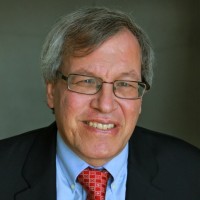Chemerinsky: Are judges politicians? SCOTUS renews the question

Erwin Chemerinsky.
The Supreme Court’s recent decision in Williams-Yulee v. Florida State Bar (PDF) will have a significant effect in judicial election campaigns and will create great uncertainty as to the constitutionality of other restrictions of speech by candidates for elected judicial offices. The court upheld a Florida law, based on a provision of the American Bar Association’s Model Code of Judicial Conduct, which prohibits candidates for judgeships from personally soliciting or receiving funds. The court’s emphatic declaration that judges are not politicians is in clear tension with its earlier decision in Republican Party of Minnesota v. White, issued in 2002, and leaves open the question of what else states may do in regulating speech in judicial election campaigns.
Florida, like 38 other states, has judges who must face election. Lanell Williams-Yulee ran to be a trial judge in Florida and sent letters to her prospective supporters to ask them to contribute money to her campaign. She lost the election, and the Florida Bar disciplined her for violating Canon 7(C)(1) by sending out the letter soliciting funds. Williams-Yulee raised the First Amendment as a defense to bar discipline.
Canon 7C(1) of the Florida Code of Judicial Conduct provides: “A candidate, including an incumbent judge, for a judicial office that is filled by public election between competing candidates shall not personally solicit campaign funds, or solicit attorneys for publicly stated support, but may establish committees of responsible persons to secure and manage the expenditure of funds for the candidate’s campaign and to obtain public statements of support for his or her candidacy.” Thirty-one states, including Florida, have such a provision.
Williams-Yulee raised the First Amendment as a defense to bar discipline. The Florida Supreme Court ruled against her and on April 29, the U.S. Supreme Court, in a 5-4 decision, affirmed and upheld the Florida law and its application.
Chief Justice John G. Roberts Jr. wrote the majority opinion, joined by Justices Ruth Bader Ginsburg, Stephen G. Breyer, Sonia Sotomayor and Elena Kagan. Chief Justice Roberts began his opinion by powerfully declaring: “Judges are not politicians, even when they come to the bench by way of the ballot. And a state’s decision to elect its judiciary does not compel it to treat judicial candidates like campaigners for political office. A state may assure its people that judges will apply the law without fear or favor—and without having personally asked anyone for money.”
Chief Justice Roberts, in a part of the opinion joined by only Justices, Sotomayor and Kagan, said that such regulations of campaign solicitations must meet strict scrutiny and thus be narrowly tailored to achieve a compelling government purpose. Justices Ginsburg and Breyer, in concurring opinions, said that less than strict scrutiny should be used for such regulations of campaign finance in judicial elections. But all five of the justices accepted that the government has a compelling interest in limiting the solicitation of contributions: preserving confidence in the judiciary.
Chief Justice Roberts, writing for the majority, declared: “Here, Canon 7C(1) advances the state’s compelling interest in preserving public confidence in the integrity of the judiciary, and it does so through means narrowly tailored to avoid unnecessarily abridging speech. This is therefore one of the rare cases in which a speech restriction withstands strict scrutiny.”
Justice Ginsburg, joined by Justice Breyer, would have gone even further in deference to state regulation of fundraising by candidates for judicial office. Justice Ginsburg stated: “The court’s recent campaign-finance decisions, trained on political actors, should not hold sway for judicial elections… States may therefore impose different campaign-finance rules for judicial elections than for political elections.”
Justices Antonin Scalia, Anthony M. Kennedy, and Samuel A. Alito each wrote dissenting opinions. Justice Scalia began his dissent by declaring, “Faithful application of our precedents would have made short work of this wildly disproportionate restriction upon speech. Intent upon upholding the canon, however, the court flattens one settled First Amendment principle after another.”
Justice Kennedy, in his dissent, lamented “the irony in the court’s having concluded that the very First Amendment protections judges must enforce should be lessened when a judicial candidate’s own speech is at issue.”
Justice Alito, in his dissent, stressed that the Florida law should have been declared unconstitutional as not being narrowly tailored and said “this rule is about as narrowly tailored as a burlap bag.”
The decision obviously means that candidates for elected judicial office cannot personally solicit funds in the 31 states that prohibit this. But this is only one of many restrictions on speech and fund raising by judicial candidates. For example, Rule 4.1 of the American Bar Association’s Model Code of Judicial Conduct, also prohibits a candidate for judicial office from making speeches on behalf of a political organization, publicly endorsing or opposing a candidate for any public office, making a contribution to a political organization or a candidate for public office, attending or purchasing tickets for dinners or other events sponsored by a political organization or a candidate for public office, publicly identifying himself or herself as a candidate of a political organization, seeking or accepting or using endorsements from a political organization, or making pledges or promises or commitments “that are inconsistent with the impartial performance of the adjudicative duties of judicial office.”
In Republican Party of Minnesota v. White, the Supreme Court, by a 5-4 margin, declared unconstitutional a state law that prohibited candidates for elected judicial office from making statements about disputed legal or political issues. Justice Scalia wrote the majority opinion, joined by Chief Justice William H. Rehnquist and Justices Sandra Day O’Connor, Kennedy and Clarence Thomas.
Both Justice Scalia’s majority opinion and Justice O’Connor’s concurring opinion expressed the view if a state has elected judges, then judicial candidates are politicians and should have the ability to engage in speech as politicians. Justices John Paul Stevens and Ginsburg wrote vehement dissents, joined by Justices David H. Souter and Breyer, and argued that judges are different from other elected officials and that therefore restrictions on speech in judicial campaigns should be allowed even if they would not be permitted in any other context.
After this decision, many lower federal courts declared unconstitutional other restrictions on political speech and fundraising by judicial candidates. For example:
• In Carey v. Wolnitzek (PDF), the 6th U.S. Circuit Court of Appeals in 2010 declared unconstitutional provisions prohibiting candidates from identifying themselves as members of a political party or from intentionally or recklessly communicating in a way that would be perceived as committing the judge or candidate to rule a certain way.
• Also in 2010, the 7th Circuit declared unconstitutional provisions banning party membership and partisan endorsements in Siefert v. Alexander.
• In Alaska Right to Life PAC v. Feldman in 2005, a federal district court in Alaska declared unconstitutional a prohibition against candidates for judicial office making pledges or promises.
• In Spargo v. N.Y. State Commission on Judicial Conduct, a New York district court declared in 2003 that provisions prohibiting public endorsements of political candidates, making speeches on behalf of candidates, attending political gatherings, participating in a campaign, or engaging in any partisan activity were unconstitutional.
Perhaps the court’s decision in Williams-Yulee will mean only that restrictions on fundraising by judicial candidates will be constitutional even when they would be impermissible in other contexts. This might open the door to the Supreme Court being willing to allow limits on independent expenditures in judicial election campaigns, something I have long advocated, even though they are unconstitutional for other elections.
But Williams-Yulee may mean a more profound shift away from Republican Party of Minnesota v. White and a willingness of the court to allow much more in the way of government regulation of speech in judicial election campaigns.
Republican Party was based on the premise that those running for judgeships are inherently politicians and should be able to engage in speech like all other politicians. But Williams-Yulee expressly declared that judges are not politicians, even when running for office. In Republican Party, it was the five most conservative justices in the majority and the four most liberal justices in dissent. In Williams-Yulee, Chief Justice Roberts joins the four most liberal justices to create the majority. This suggests a new majority that is much more likely to agree with the dissent from Republican Party than its majority.
Unquestionably, this majority is correct that there is a compelling government interest in preserving public confidence in the judiciary. But the question that will need to be faced is whether there can be meaningful judicial elections if those running for judge cannot express their views and are greatly limited in their ability to raise funds.
For better or worse, judicial elections are here to stay in a majority of the states and ultimately the Supreme Court will need to return to this issue and more directly confront the question of how to accommodate basic principles of freedom of speech with its premise that judges are not politicians, even when they are running for election.
Erwin Chemerinsky is Dean and Distinguished Professor of Law, and Raymond Pryke Professor of First Amendment Law at the University of California, Irvine School of Law. He is an expert in constitutional law, federal practice, civil rights and civil liberties, and appellate litigation. He’s the author of seven books, including The Case Against the Supreme Court (Viking, 2014).



